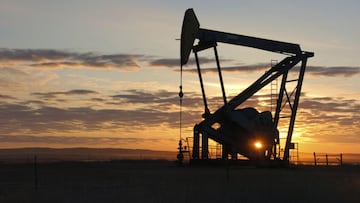Global oil refining capacity expected to grow through 2028, says new report
Oil refining capacity is expected to grow globally through 2028. The consequences should greenhouse gas emissions continue to grow as well.


Climate scientists warn that if global surface temperatures increase by 1.5ºC or more, ecosystems will come under immense pressure, and irreparable damage will be done to the environmental systems that prevent certain climatic catastrophes. New data from the National Oceanic and Atmospheric Adminstration (NOAA) shows that we may not be far off from that possibility. The average for global surface temperature for the month of July recorded in the 20th century was 15.8º C, or 60.4º F. NOAA reported earlier this month that in July 2024, the average was 1.21º C, or 2.18º F higher than those figures, a sign that the 1.5ºC increase might be closer than most people realize. Regarding how the month will be remembered in the historical record, it currently holds the position as the hottest July in NOAA’s records, not to mention that it followed thirteen months of “record-high temperatures for the planet.”
Global emissions, which create the greenhouse gas effect, facilitate global warming and must be reduced to avoid the horrific consequences of temperatures rising above the 1.5ºC threshold. This level of warming has not yet been reached, and already, the severity of natural disasters is intensifying. However, a new report forecasting global petroleum consumption shows that refining capacity and consumption of petroleum products are expected to rise through 2028 rather than decrease. The US Energy Information Administration’s Outlook on global refining to 2028 estimates that in 2024, 103 million barrels will have been consumed a day, and by 2028, that figure will have risen to 105 million barrels a day.
Check out our new analysis looking at:
— EIA (@EIAgov) August 23, 2024
🛢️ Major refinery investments with plans to enter service through 2028
🛢️ Their collective refined product output
🛢️ Their meaning for global crude oil and refined product trade
▶️ https://t.co/ERkWYXEISf pic.twitter.com/XIAb9zCa9r
Emissions expected to increase through 2050
The report highlights that the consumption of petroleum and fining capacity will likely occur in geographies where the professional middle class is expanding. “Countries in Asia and the Middle East face growing incomes and middle classes, which will increase consumption of consumer goods and transportation fuels within the next 10 years,” write the report’s authors. For this increase in consumption to not lead to an increase in emissions, other areas would need to reduce their emissions. As of 2023, the world is not on track to record reductions before 2025. A report by the EIA published in October 2023 projected global emissions from energy consumption are expected to rise through 2050, even accounting for the transition away from fossil fuels and the expansion of energy production from renewable sources. Aside from the energy sector, others, like transportation, are also projected to rise by the middle of the century, raising alarm bells for climate scientists and activists who, for more than a decade, have been calling on governments to enact policies at the domestic and international level that will lead to a reduction in global emissions.
Related stories
This year, the United Nations Framework Convention on Climate Change will take place in Azerbaijan, a country where 92 percent of its export revenue is derived from the trade of fossil fuel resources. In November, the representatives from the convention’s signatories will descend on Baku, Azerbaijan’s capital, and human rights activists are already expressing concern that not enough is being done to protect the rights of environmental defenders who will be present at the conference. Amnesty International published a press release in July explaining that based on Azerbaijan’s human rights track record, the “safety and security of participants at this year’s COP” cannot be ensured.
UN organizers of COP29 in November must ensure the Host Country Agreement with Azerbaijan safeguards human rights and is made publicly available so potential attendees can assess the risks they face at the climate summit, Amnesty International said today. https://t.co/Y0gOPQgPGD
— amnestypress (@amnestypress) July 3, 2024
Environmental defenders, climate scientists, and activists are some of the most influential voices at COP because they expose the dire need for action and the threats that will follow if their warnings are not heeded. Their participation, however damaging it may be to fossil fuel companies and the governments that protect their financial interests, must be heard and must be protected.
Complete your personal details to comment